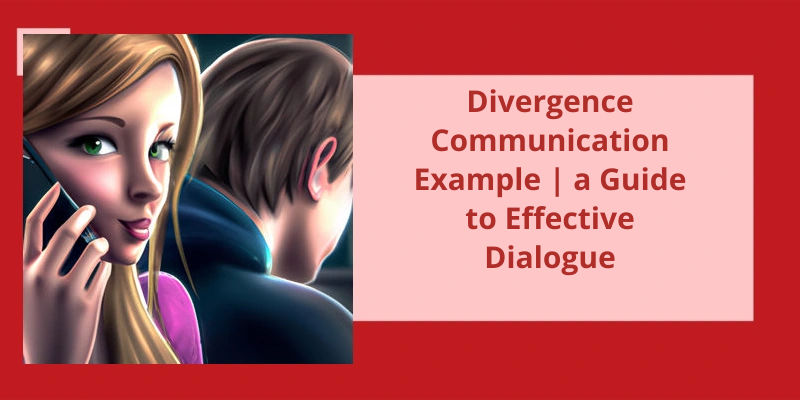In the realm of human relationships, communication plays a pivotal role in fostering understanding, resolving conflicts, and building stronger connections. However, there are instances when we unintentionally falter in our efforts to maintain effective communication with someone, leading to strained interactions or lost connections. If you find yourself in a situation where you wish to ask someone to talk to you again, it’s crucial to approach the matter with sincerity, humility, and a genuine desire to resolve any misunderstandings or gaps in communication. Instead of becoming defensive or avoiding the issue, taking responsibility for your part in the disconnection and expressing a heartfelt apology can set the foundation for a meaningful conversation. By acknowledging your lapse in communication and expressing a willingness to work towards improving your relationship, you demonstrate your commitment to open and honest dialogue, which can pave the way for reconnecting with the person you wish to reach out to.
How Do You Ask to Talk Again?
If youre wondering how to ask someone to talk to you again, it’s important to approach the situation with patience and understanding. The first step is to give them the time and space they need to sort things out. It’s natural for people to need time to process their emotions and thoughts before they can discuss things further.
While waiting for them to be ready, take some time to reflect on where things may have gone wrong. Consider your own actions and words, and try to understand how they may have contributed to the current situation. This self-reflection can help you approach the conversation with a more open mind and a willingness to take responsibility for your role in the issue.
When you do eventually reach out, it’s essential to manage your emotions. Stay calm and collected, as any hint of anger or defensiveness could escalate the situation further. Keep the conversation light and simple, but not too simple. It’s important to address the issue at hand, but avoid overwhelming them with an excessive amount of information or demands.
If they don’t initially respond to your attempt to start a conversation, it’s crucial not to flood them with endless messages. Respect their boundaries and give them the space they need. It may take time for them to feel comfortable enough to talk, and pressuring them will only make the situation more challenging.
One of the most important steps you can take is to own up to your mistakes. Apologize sincerely for any hurt you may have caused, and show genuine remorse. Taking responsibility for your actions can help rebuild trust and open the door for future communication.
Overall, it’s essential to approach the situation with empathy and understanding. Give them the time they need, reflect on your own actions, manage your emotions, and own up to your mistakes. By following these practical tips, you increase the chances of having a successful conversation and resolving any issues that may be present.
After a long hiatus, getting back in touch with an old friend can often feel daunting. But fear not, because reconnecting with someone doesn’t have to be awkward. Start by simply saying hi and remarking on how quickly time has flown. Reminisce about the happy moments you shared, providing a pleasant backdrop to your conversation. From there, inquire about the people they’ve kept in touch with and genuinely show interest in their lives. Catching up on what they’ve been up to can open up countless topics to explore. Lastly, make plans to talk again, ensuring the connection doesn’t drift away once more. With these conversation starters, you’ll have no trouble rekindling a meaningful dialogue.
How Do You Start Talking to Someone After a Long Time?
Sometimes, the fear of reaching out to someone after a long time can be overwhelming. However, finding the courage to reconnect with an old friend can lead to a rekindling of a cherished friendship. So, how do you start talking to someone again without feeling awkward or distant?
Firstly, simplicity can work wonders. Just say hi! A simple greeting can open the door to conversation and break the ice. It shows that you’re genuinely interested in reconnecting and opens the opportunity for further dialogue.
Additionally, commenting on how quickly time flies can be a great conversation starter. Mentioning how it feels like just yesterday that you last saw each other can evoke nostalgia and provide a common ground to reminisce about your shared experiences.
Recalling happy moments together can also help to bridge the gap between you. Sharing a fond memory or inside joke can instantly bring back positive emotions and remind your friend of the bond you once had.
To make the conversation more dynamic, you can inquire about who theyve stayed in touch with during your time apart. This opens the door for updates on mutual acquaintances and can help you gauge their current social circle.
Furthermore, expressing curiosity about what theyve been up to can spark a lively conversation. Ask about their recent achievements, hobbies, or interests to show genuine interest in their life. This will allow you to catch up on each others lives and discover new commonalities.
Lastly, to ensure that the connection doesn’t fizzle out again, make plans to talk again or meet up in the near future. This demonstrates your commitment to keeping the friendship alive and serves as a follow-up to your initial conversation.
Reconnecting with an old friend might feel daunting, but by using these conversation starters, you can make the process easier and more comfortable. Remember, genuine curiosity and the willingness to invest in the friendship will go a long way in rebuilding and strengthening your bond.
Source: How to start a conversation with someone I haven’t spoken …
When there’s a breakdown in communication and you find yourself longing for someone to talk to you again, it can be challenging to know how to mend the situation. However, there are various strategies you can employ to encourage dialogue and rebuild the connection. Some key tips include giving the person space, improving your conversational skills, asking thought-provoking questions, enhancing your charisma, focusing on personal growth, being vulnerable, and avoiding interrupting. By incorporating these techniques into your approach, you increase the likelihood of reopening the lines of communication and fostering a stronger relationship.
How Do You Convince Someone to Talk to You Again?
Have you ever found yourself in a situation where you desperately wanted someone to talk to you again? Whether it’s a friend, a family member, or a romantic interest, losing communication with someone you care about can be incredibly challenging. However, there are ways to mend the situation and convince them to give you another chance.
Once the time is right, learning how to have a good conversation is crucial. Show genuine interest in the other person by actively listening, maintaining eye contact, and offering your undivided attention. Avoid distractions and focus on making them feel valued and heard.
Another powerful technique is to ask the right questions. This shows that you’re genuinely interested in their perspective and feelings. Open-ended questions that encourage them to express themselves can help foster a deeper connection and encourage them to open up.
Moreover, charisma and likability can play a significant role in convincing someone to talk to you again. Work on improving your social skills, such as maintaining positive body language, using humor appropriately, and showing empathy towards others. Being pleasant and approachable can make a big difference in attracting others towards you.
Furthermore, it’s essential to cultivate a fulfilling life outside of your relationship with the person you want to reconnect with. Focus on your hobbies, interests, and personal growth. By having experiences and developing your own identity, you become more interesting and attractive to others.
While it can be tempting to put up walls and protect yourself from vulnerability, being open and honest about your feelings can create a safe space for the other person to do the same. Expressing genuine remorse and taking responsibility for any mistakes you may have made can help rebuild trust and repair the relationship.
Last but not least, it’s vital to avoid interrupting the other person when they finally decide to talk to you again. Give them the opportunity to express their thoughts and feelings without any interruptions. Active listening and patience are key in rebuilding communication and fostering a healthy dialogue.
Getting someone to talk to you again requires patience, empathy, and a genuine desire to mend the relationship. By respecting their boundaries, improving your conversation skills, asking the right questions, and being charismatic, you can increase the chances of reconnecting with them. Additionally, developing an interesting and fulfilling life outside of the relationship, being vulnerable, and practicing active listening are essential steps in rebuilding trust and fostering a healthy dialogue.
Sometimes in life, we may come across situations where someone chooses not to talk to us anymore. It can be challenging to accept this reality, but there are practical steps we can take to navigate through this difficult situation.
How Do You Accept That Someone Won’t Talk to You?
Sometimes, despite our best efforts, we may find ourselves in a situation where someone no longer wants to talk to us. Accepting this can be challenging, but there are ways to handle it gracefully. First and foremost, it’s important to be honest and kind in your interactions. Let the person know that you understand and respect their decision.
Respect is key in these situations. It’s essential to honor their boundaries and not pressure them into resuming communication. Give them the space and time they need to process their thoughts and emotions. This doesn’t mean you’ve to disappear completely, though. Being proactive and showing your care and support in other ways can help maintain a positive connection, even if it’s not through direct conversation.
Remember, accepting their decision doesn’t mean giving up hope entirely. Be optimistic about the future and the possibility of reconnecting when the time is right. It’s important not to hold onto any resentment or bitterness, as that will only hinder any chances of repairing the relationship.
In the meantime, taking a break for yourself can be beneficial. Use this time to reflect on the situation and work on personal growth. Engage in activities that bring you joy and help to shift your focus away from the disappointment. Surround yourself with supportive friends and loved ones who can provide comfort and understanding during this challenging period.
Ultimately, accepting that someone won’t talk to you requires a combination of honesty, respect, and optimism. It may not be easy to come to terms with, but by following these practical tips, you can navigate through the situation with grace and maintain your own well-being.
How to Communicate Your Feelings of Hurt or Disappointment Without Pressuring the Other Person
- Express your emotions calmly and openly
- Avoid blaming or accusing the other person
- Try using “I” statements to express how you feel
- Give the other person space to respond
- Show empathy and understanding towards their perspective
- Focus on problem-solving rather than dwelling on the hurt
- Listen actively and validate their feelings as well
- Choose an appropriate time and place for the conversation
- Be prepared for different outcomes and reactions
- Consider seeking professional help if necessary
Navigating a friendship where communication has abruptly ceased can be challenging. One way to initiate a conversation is by sending a sincere text or note, expressing curiosity about the reason behind the sudden silence. Offering a genuine apology can open the door to understanding and reconciliation. It’s also helpful to inquire about how you can mend the situation and progress positively. Remember, it’s crucial to avoid publicly confronting your friend on social media or in front of mutual acquaintances, as it may complicate the chance for resolution.
How Do You Be Friends With Someone Who Stopped Talking to You?
When faced with the difficult situation of a friend who’s stopped talking to you, it can be challenging to navigate the path towards rekindling your friendship. One of the first steps you can take is to reach out to them with a heartfelt text or note. Express your concern and curiosity about why you havent heard from them, allowing them the space to open up about their feelings. By showing genuine interest, you demonstrate your willingness to understand and address any issues that need to be resolved.
An honest apology can go a long way in rebuilding a friendship. Reflect on your actions or words that may have caused any hurt or misunderstanding. Acknowledge your mistakes and express regret for any pain you may have caused. Take responsibility for your actions, as this shows that you value the friendship and want to make amends.
Furthermore, ask your friend directly what you can do to make things right and move forward. By actively seeking their input, you demonstrate your commitment to repairing the friendship. Listen attentively and be receptive to their suggestions. This step allows them to have a voice in the process and encourages open communication.
It’s important to exercise caution and discretion when navigating a sensitive situation like this. Avoid airing your grievances or calling out your friend on social media or in front of your other friends. Publicly shaming someone can further strain the relationship and make it more difficult to rebuild trust. Instead, focus on having a private and meaningful conversation with your friend, showing them the respect and privacy they deserve.
Ultimately, rebuilding a friendship takes time, effort, and patience. Remain open, honest, and understanding through the process. Be prepared for different outcomes, as your friend may need space or have reservations about rebuilding the friendship. Respect their boundaries and decisions, even if it means accepting that the relationship may never fully recover. Above all, prioritize genuine communication, empathy, and sincerity, as these are the foundations of any successful friendship.
Dealing With a Friend Who Consistently Avoids or Ignores Attempts at Reconciliation.
- Communicate openly and honestly: Express your feelings and concerns to your friend in a calm and respectful manner.
- Listen actively: Give your friend an opportunity to share their perspective and concerns.
- Be patient: Understand that it may take time for your friend to come around and be willing to reconcile.
- Practice empathy: Try to understand why your friend may be avoiding or ignoring reconciliation attempts.
- Offer support: Let your friend know that you’re there for them and willing to work through any issues together.
- Set boundaries: If your friend consistently avoids reconciliation without valid reasons, consider setting boundaries to protect your emotional well-being.
- Seek professional help: If the situation persists and affects your mental health, consider seeking guidance from a therapist or counselor.
- Focus on personal growth: Use this experience as an opportunity for self-reflection and personal development.
- Accept the outcome: Understand that reconciliation may not always be possible, and it’s essential to accept this reality.
- Move forward: Surround yourself with positive relationships and focus on nurturing those connections.
Conclusion
In conclusion, when seeking to reconnect with someone who’s stopped talking to you, it’s important to approach the situation with humility and a willingness to take responsibility. Rather than becoming defensive or accusatory, acknowledging any shortcomings on your part and offering an apology can create a foundation for open and honest communication. By expressing a genuine desire to understand and address the issue at hand, you can demonstrate your commitment to resolving conflicts and improving the relationship moving forward. Remember, effective communication is key in any relationship, and by showing humility and a willingness to work towards a better future, you can increase the likelihood of having a productive conversation and rebuilding the connection.






